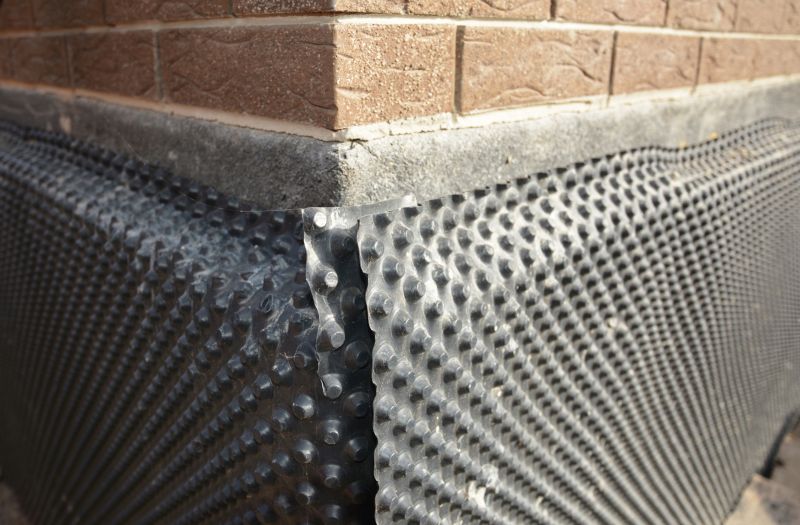Top Waterproofing Products to Protect Your Home and Structure
Explore the leading waterproofing solutions designed to prevent leaks, enhance durability, and ensure long-lasting protection.
 Waterproofing products are essential for protecting structures from moisture intrusion, which can lead to damage, mold growth, and deterioration over time. Whether safeguarding a basement, roof, foundation, or exterior wall, choosing the right waterproofing solution is crucial for long-term durability. These products come in various forms, including liquid coatings, sealants, membranes, and tapes, each suited for different applications and surfaces. Proper application and selection can help prevent water ingress and maintain the structural integrity of buildings in diverse environments.
Waterproofing products are essential for protecting structures from moisture intrusion, which can lead to damage, mold growth, and deterioration over time. Whether safeguarding a basement, roof, foundation, or exterior wall, choosing the right waterproofing solution is crucial for long-term durability. These products come in various forms, including liquid coatings, sealants, membranes, and tapes, each suited for different applications and surfaces. Proper application and selection can help prevent water ingress and maintain the structural integrity of buildings in diverse environments.
Top Overall Option
Liquid Waterproofing Membrane
A versatile liquid membrane offers seamless coverage and can be applied to a variety of surfaces including foundations, roofs, and walls. Its ease of application and ability to conform to complex shapes make it a popular choice for comprehensive waterproofing solutions. When properly applied, it provides a durable, flexible barrier against moisture intrusion, helping to protect structures over time.
Types of Products For Waterproofings
Liquid Waterproofing Membranes
Flexible liquid coatings that form seamless barriers on various surfaces.
Bituminous Coatings
Asphalt-based coatings ideal for foundations and roofs with high water exposure.
Rubberized Sealants
Elastic sealants suitable for sealing joints, cracks, and small gaps.
Polyurethane Coatings
Durable coatings that resist abrasion and provide excellent waterproofing for roofs and decks.
Sheet Membranes
Pre-formed sheets made from rubber or plastic for large surface coverage.
Cementitious Waterproofing
Waterproof cement-based coatings often used in basements and tunnels.
Bitumen Sheets
Self-adhesive or torch-applied bitumen sheets for roofing and below-grade applications.
Waterproofing Tapes
Flexible tapes used to seal joints, cracks, and overlaps in waterproofing layers.
Crack Repair Sealants
Specialized sealants designed to fill and seal cracks in concrete and masonry surfaces.
Spray-On Waterproof Coatings
Sprayable products that provide a quick, uniform waterproof layer on various surfaces.
Epoxy Waterproof Coatings
High-strength coatings suitable for basements, tunnels, and industrial settings.
Acrylic Waterproof Coatings
Flexible, weather-resistant coatings ideal for exterior walls and roofs.
Polymer Modified Coatings
Enhanced coatings offering improved adhesion and flexibility for challenging surfaces.
Waterproofing Paints
Paints with waterproofing properties that can be applied over existing surfaces for added protection.
Popular Choices
Widely used for their seamless application and adaptability to different surfaces.
Commonly selected for foundational and roofing projects due to their durability.
Popular for sealing joints and cracks in various building components.
Chosen for large-scale waterproofing applications such as basements and roofs.
Favored for decks and flat roofs due to their flexibility and weather resistance.
Often used in underground and below-grade structures for its compatibility with concrete.
Convenient for quick repairs and sealing small gaps or overlaps.
Popular for maintaining the integrity of concrete surfaces over time.
Preferred for their quick application and uniform coverage in various projects.
Chosen for high-strength applications requiring durable moisture barriers.
Often used on exterior surfaces for their weather-resistant properties.
Applied over existing surfaces to enhance water resistance with minimal prep.
In Gastonia, North Carolina, where humidity and seasonal weather fluctuations are common, effective waterproofing is particularly important for both residential and commercial properties. The right product not only protects against rain and groundwater but also withstands temperature variations and aging. When considering waterproofing options, it is vital to assess the specific needs of the project, including surface type, exposure level, and existing conditions. Consulting product specifications and application instructions can ensure optimal results.
Investing in quality waterproofing solutions can also simplify maintenance and reduce long-term repair costs. Many products are designed for easy application, whether by brush, roller, or spray, making them accessible for DIY projects or professional installations. Additionally, selecting versatile products that adhere well to different surfaces, such as concrete, wood, or masonry, can enhance the overall effectiveness of waterproofing efforts. Regular inspection and timely reapplication help maintain the protective barrier and prolong the lifespan of the structure.
Ultimately, understanding the variety of waterproofing products available allows property owners in Gastonia to make informed decisions tailored to their specific needs. From foundational sealing to roof coatings, the right products can provide reliable moisture defense. Properly applied, these solutions contribute to building longevity, safety, and comfort, ensuring properties remain resilient against water-related challenges over time.
Key Buying Considerations
- Identify the specific surface type and its compatibility with the product.
- Determine the level of water exposure and choose a product rated for that environment.
- Consider the flexibility and adhesion properties required for your application.
- Evaluate ease of application, whether DIY or professional installation.
- Check drying and curing times to plan your project timeline accordingly.
- Assess the product’s resistance to temperature fluctuations and aging.
- Review surface preparation requirements for optimal adhesion.
- Look for products with proven durability in similar conditions.
- Consider the size and coverage area to ensure sufficient quantity.
- Verify compatibility with existing waterproofing layers or materials.
- Evaluate the environmental conditions, such as humidity and rainfall, during application.
- Assess the need for additional protective layers or coatings.
- Review safety instructions and handling precautions.
- Determine if the product is suitable for below-grade, above-grade, or both applications.
- Consider budget constraints while balancing quality and longevity.
